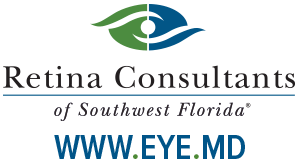Is AMD genetic testing helpful or a waste of money?
Originally Published in the News-Press on 6/25/2013
Age-related macular degeneration is a common degenerative condition of the retina and is the leading cause of blindness in Americans who are of retirement age.
About one in 10 individuals in their 50s will display some changes of AMD, and about one in three in their 70s will display AMD changes
There is a definite genetic component to macular degeneration. Its inheritance is complex, but it is known that if your sibling or a parent has AMD, you are far more likely to develop it than the average population.
Recently, there have been several stories in the media about genetic tests available that identify an individual’s risk for developing severe AMD. One of these tests is macula risk. Macula risk is a simple cheek swab test that identifies specific genetic components of AMD that can lead to a more severe form of this disease.
The test is designated for individuals who already have an established diagnosis of AMD. Retina Consultants of Southwest Florida has made this test available to the public since FDA approval a few years ago. The more information a patient has about their disease, the better, right? Not necessarily.
Opinions about this type of genetic testing have changed. Recently, the American Academy of Ophthalmology released its recommendation regarding this kind of testing. “The Academy advises against routine genetic testing for AMD and other complex eye disorders until specific treatment or monitoring strategies have been shown in clinical trials to be of benefit to people with specific, risk-linked genotypes,” the AAO said in a press release. This recommendation was publicized after the results of “Comparison of Age-Related Macular Degeneration Treatment Trials” were released.
Retina Consultants of Southwest Florida was the only study site in Southwest Florida for the CATT clinical trial from 2008 to 2012. Each patient was genotyped for the four genetic variants of AMD. The researchers then compared patients with these genetic variants to their response to treatment after one year. The treatment consisted of injections of either Lucentis (ranibizumab) or Avastin (bevacizumab), which are used to treat the wet variety of AMD.
The study analyzed several factors and found that vision, the amount of response to medications under study, the type of medication patients received, and the number of injections needed were not significantly related to the presence of these gene variants.
When a patient considers having this type of routine genetic testing, there are many questions they should ask their doctor, such as: Is the test affordable? Will patients receive any medical benefit as a result of this test? Doctors must consider their patients’ best interests when developing a treatment plan. Retina Consultants of Southwest Florida wholeheartedly supports the American Academy of Ophthalmology’s position regarding genetic testing for AMD.
The cost of the macula risk genetic test can be from several hundred dollars to a few thousand dollars and insurance may not cover the cost of the testing. Based on the results of the CATT study and the American Academy of Ophthalmology recommendations, the physicians of Retina Consultants will not change their AMD treatment plan recommendations based solely on genetic testing results.
We will continue to monitor and evaluate genetic testing as it becomes more advanced and refined. In the meantime, we feel that the only knowledge to be gained from present genetic testing is the possible need for lifestyle changes.
The answer is simple. Save yourself a chunk of change: See your eye care professional regularly, eat a healthy diet and don’t smoke!
